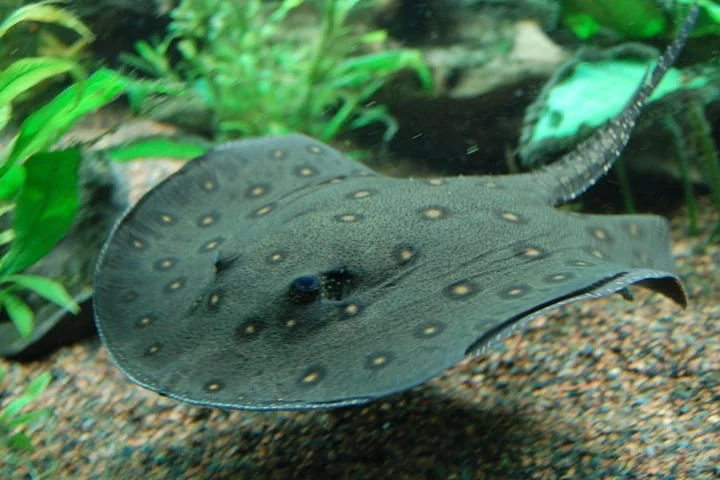It is not just mammals and birds who can do simple addition and subtraction as studies have shown that bees and salamanders are capable of that. Now fresh research has added fishes – cichlids and stingrays – to that growing list as per a report in sciencealert.com.
Both the zebra mbuna cichlids or Pseudotropheus zebra and freshwater stingrays or Potamotrygon motoro have exhibited this capability which goes beyond symbol memorisation.
Sharing the essence of their study in a paper, Vera Schluessel and colleagues wrote: “Individuals did not just learn to pick the highest or lowest number presented based on the respective colour; instead, learning was specific to adding or subtracting 'one'.”
Schluessel is a zoologist at Bonn University.
Scientists showed the fish two gates which had cards with different number of shapes. On being shown a card that three blue squares, the correct door would have to be one with four blue squares, meaning that they have to add one and for this they will be rewarded. Likewise, when the shapes on the cards were yellow in colour, this translated into subtraction of one from the number of shapes to recognise the right door.
Just as in the case of other creatures, not all the individual fishes became successful in learning this task. Six out of eight cichlids learnt it as did three of eight stingrays and those who did it were quite adept at it. When it came to addition, stingrays got it right 94 per cent of the time, while for subtraction, the percentage was 89.
Interestingly, both these types of fishes picked up addition much faster and easily than subtraction and they needed much less sessions training for this.
Also read: Listen carefully as fishes have been talking for the last 155 million years
Further, as compared to the stingrays, cichlids were much quicker in comprehending their work and also successful. This according to the researchers could be due to the fact that these fish had taken part in other experiments on cognition while the stingrays had not.
What is remarkable as per Schluessel and her team is that these two fishes which performed basic arithmetic calculations have no whatsoever behavioural or ecological need for this ability.
They are not hunters and are opportunistic feeders, nor do they need to know counting while mating nor are they choosy about a social group which is of a particular size. Yet, this capacity to add and subtract may be of use in some sphere which science is not aware of.
However, the scientists feel that this study brings to light a more important issue. "A more interesting question is as to why animals such as fish…are still commonly referred to as 'primitive' or 'lower' vertebrates. It seems obvious that fish, their cognitive skills and their status to be considered as sentient animals urgently needs to be revisited, specifically in light of the detrimental anthropogenic threats fish face every day."
In their conclusion, the team said: "Fish possess many of the same cognitive abilities and to a similar extent as birds and mammals.”
The details of this research were published in Scientific Reports.




















